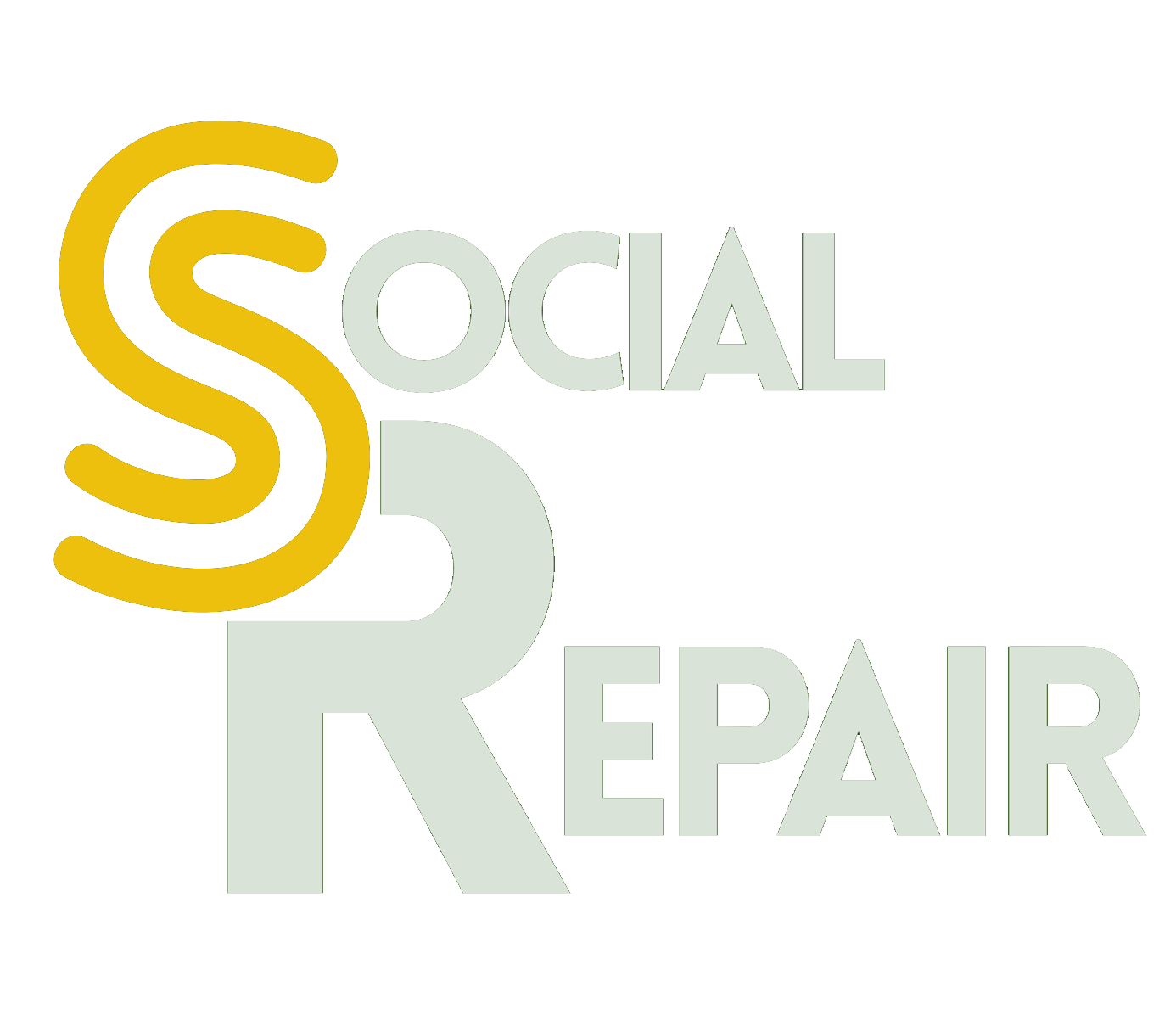Terms Resonant with Social Repair
7 November 2025
During the Social Repair team’s meeting last month at Walter Sisulu University, one of our sessions centred on resonant terms through which we might approach our work. Social repair, as a central framework of this project, describes how local communities seek to re-weave the social fabric of society, patching holes that have been created by inequality, division, and democratic backsliding. But this term is just one way to conceptualize this broader process. During this conversation, Lead PI Prof Christi van der Westhuizen led the team through kindred terms and concepts that may prove useful in both understanding our own data and also sharing our findings with academic and public audiences. Terms we explored included ubuntu, non-racialism, and coöperism.
Our discussion began with ubuntu, an African philosophy which roughly translates to “I am because we are” or “a person is a person through other people.” As a key concept of the Social Repair project, ubuntu served as an anchor to many of our conversations. Starting from ubuntu, Prof Van der Westhuizen enriched our team’s understanding of Indigenous African philosophies by also highlighting the terms sawubona, gadaa, and asabiyyah. These concepts emerge from South African, Ethiopian, and North African communities respectively, and each reflect local practices and outlooks on social and political structures. Gadaa and asabiyyah are discussed in a forthcoming edited volume, titled the Routledge Handbook of Social Cohesion in Africa.
Sawubona, for instance, is a greeting that roughly translates to “I see you,” but extends deeper than mere visual recognition, as argued by Stellenbosch University scholar Precious Simba. Instead, it carries the recognition of another person’s dignity and value, and places both parties in a relationship of mutual respect and trust. Much like the local case studies that team members are conducting across different countries, these concepts reinforce that people in different contexts may have their own unique frameworks for making sense of difference and forging cooperative relationships. Regardless, each society seems to possess some way through which they acknowledge, accept, and respect the humanity of other individuals.
Another term our team reflected on in this session was that of non-racialism. It can be linked to the concept of racialization, which argues that race is not inherent, but rather a social process of ascription in which skin colour and phenotype are interpreted for purposes of hierarchization that determines resource distribution. Extending from this, non-racialism envisages a world in which people are not racialized. Emerging in the context of South Africa, non-racialism offers a vision of how this nation wants to see itself. Through our discussion, we also discussed criticisms of this concept, which have reduced it to merely mean colourblindness. Such a reduction ignores the rich history of the century-old concept of non-racialism, which animated the anti-colonial and anti-apartheid struggles in South Africa. Since non-racialism is contained in the country’s 1996 Constitution and reflects a primary interpretation of how racial equality can be achieved in South Africa, team members also briefly discussed similar outlooks in our respective countries, such as national policies of multiculturalism in Canada.
A final concept we explored that bears mentioning is coöperism, or cooperationism. This political theory, associated with Bernard Harcourt, builds on philosophical frameworks that acknowledge the interdependence of individuals in society. Coöperism, and its related concept cooperative democracy, advocates for implementing the principles of democratic society in every facet of social life. Beyond just the political sphere, this entails cooperation and self-determination in the workplace, food systems, or approaches to the environment. In this way, coöperism offers a path to resist corporate takeover of wealth and power, and instead suggests that participatory systems can be woven together to create more sustainable and equitable societies.
Reflecting on these terms—both within this session and as all team members return to their case studies—is crucial for sharpening our focus on the core questions that our project hopes to answer. How does trust—or lack of trust—motivate forms of collective action? How do local instances of negotiating difference relate to larger systems of governance? What is the relationship between everyday life—and the philosophies that uphold these interactions—and the public sphere?
Further readings
E Abate and D Abebe, 2026 (forthcoming). “Gadaa and Social Cohesion in Ethiopia.” In: C Blum, C van der Westhuizen and U Engel. Routledge International Handbook of Social Cohesion in Africa. Oxon: Routledge.
G Ben-Nun, 2026 (forthcoming). “Two Types of "Group Feeling": Ibn Khaldun’s Asabiyyah and Its North African Legacies.” In: C Blum, C van der Westhuizen and U Engel. Routledge International Handbook of Social Cohesion in Africa. Oxon: Routledge.
Z Erasmus, 2017. Race Otherwise. Forging a New Humanism for South Africa. Johannesburg: Wits University Press.
BE Harcourt, 2024. Cooperation - A Political, Economic, and Social Theory. New York: Columbia University Press.
Chris Miller is a Postdoctoral Fellow with the Repairing Sociality, Safeguarding Democracy project, based at the University of Ottawa.

